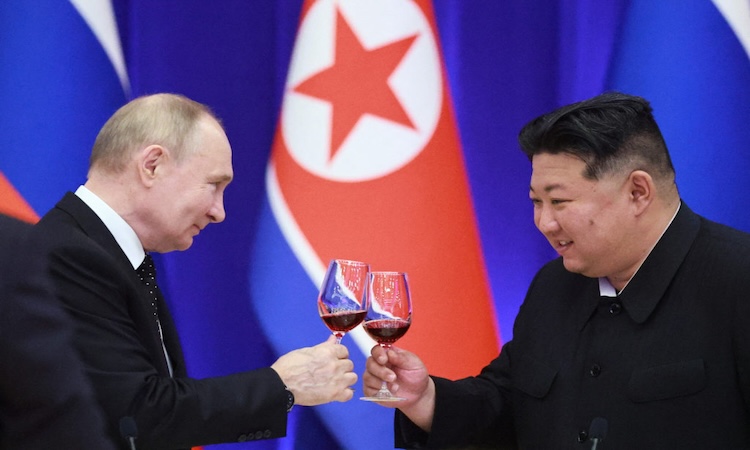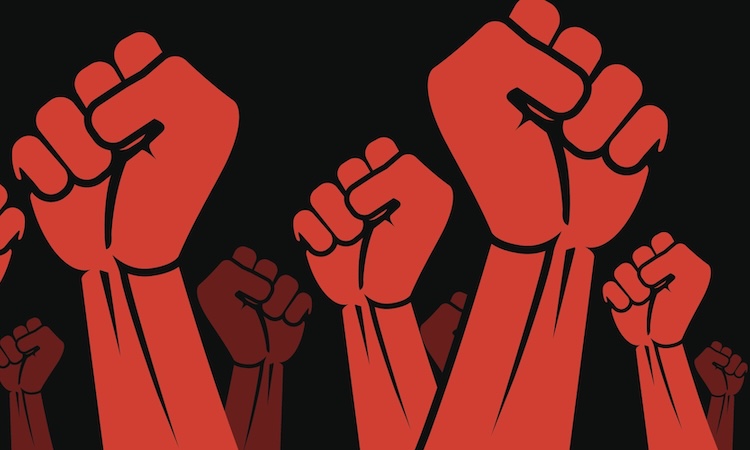The following resolution was passed unanimously by the tenth party congress of the CPGB-ML.
*****
This congress affirms that Lenin’s observation that “without revolutionary theory there can be no revolutionary movement” is as true today as it was when it was written. (What is To Be Done?, 1902)
Furthermore, revolutionary theory does not spontaneously develop from the working class and cannot emerge from the economic struggle.
This congress recognises:
- Lenin correctly argued that narrowing political and organisational work to whatever spontaneous indignations arouse the workers – because the workers are ‘not yet ready’ to learn of Marxism and revolution – necessarily traps these workers in their ignorance and deprives the revolutionary movement of potential leaders.
- Any arguments or efforts to curtail the work of educating and organising workers on a Marxist-Leninist basis only compound the problems of a lack of class-consciousness amongst British workers and the absence of a mass, popular revolutionary organisation of the British working class.
It is to our immeasurable benefit that we can rely on the works of Marx, Engels, Lenin, Stalin and other great revolutionary theoreticians and leaders. Particularly, the history of the development of the CPSU(B) and the construction of socialism in the USSR still provide the most comprehensive and relevant lessons for organising a revolutionary party and establishing the dictatorship of the proletariat, and safeguarding it from all kinds of erroneous and hostile political trends.
Marxist-Leninists do not only have to contend with hostile political theories that serve the bourgeoisie, but also an onslaught of hostile, pseudoscientific theories, peddled to the working classes through universities, think tanks, the media and numerous spy agencies. From biology to art, the bourgeoisie wages war on Marxism and the minds of the working class, as Marx and Lenin both observed:
“Throughout the civilised world the teachings of Marx evoke the utmost hostility and hatred of all bourgeois science (both official and liberal), which regards Marxism as a kind of ‘pernicious sect’. And no other attitude is to be expected, for there can be no ‘impartial’ social science in a society based on class struggle. In one way or another, all official and liberal science defends wage-slavery, whereas Marxism has declared relentless war on that slavery.” (The three sources and three component parts of Marxism by VI Lenin, 1913)
It is unsurprising, then, that many workers who see the flaws in these theories or question bourgeois propaganda begin to doubt and mistrust every aspect of what they have been told about the world around them. It is the job of communists to be able to meet these workers where they are, to understand dialectical and historical materialism, Marxist political economy and scientific socialism, and to communicate this analysis effectively to any worker without chastising them.
It is not for the sake of esoteric knowledge, dogmatism or sectarianism that communists must do this, but for practical reasons. We must raise class-consciousness, and we must find and recruit the advanced workers to our ranks to provide the future leaders of the working class in their revolutionary struggle.
“It will be the duty of the leaders to gain an ever clearer insight into all theoretical questions … constantly to keep in mind that socialism, since it has become a science, demands that it be pursued as a science, ie, that it be studied. The task will be to spread with increased zeal among the masses of the workers the ever more clarified understanding thus acquired, to knit together ever more firmly the organisation both of the party and of the trade unions.” (F Engels, The Peasant War in Germany, 1875)
Just as dialectical and historical materialism can help us understand the connections between seemingly disparate phenomena, so every political and social issue can be understood as a result of the contradictions within class society and the material world. It is through using this method and spreading the understanding it brings that the party can truly become a tribune of the working class, uniting them in their struggles against their class enemy.
Learning is a continuous, lifelong process, and it is consistent, regular study that arms us with the knowledge to safeguard the party from opportunism, revisionism and any other trends that are harmful to the party and the working class. This is what gives us the insight to direct the workers towards their real enemy – the bourgeoisie – and to provide them with the only real solution to their problems – proletarian revolution.
As Marx eloquently put it: “Material force must be overthrown by material force; but theory also becomes a material force as soon as it has gripped the masses.” It is our duty to turn revolutionary theory into a material force. (K Marx, A Contribution to the Critique of Hegel’s Philosophy of Right, 1844)
This congress therefore resolves that every candidate and full member of the party must:
- be familiar with the party’s education programme and work through its contents in both personal and group study;
- learn to analyse the world and current events as a Marxist-Leninist, and seek to be able to explain them in writing, speech or any other medium they are capable in; and
- remain a humble student of Marx, Engels, Lenin and Stalin.
















